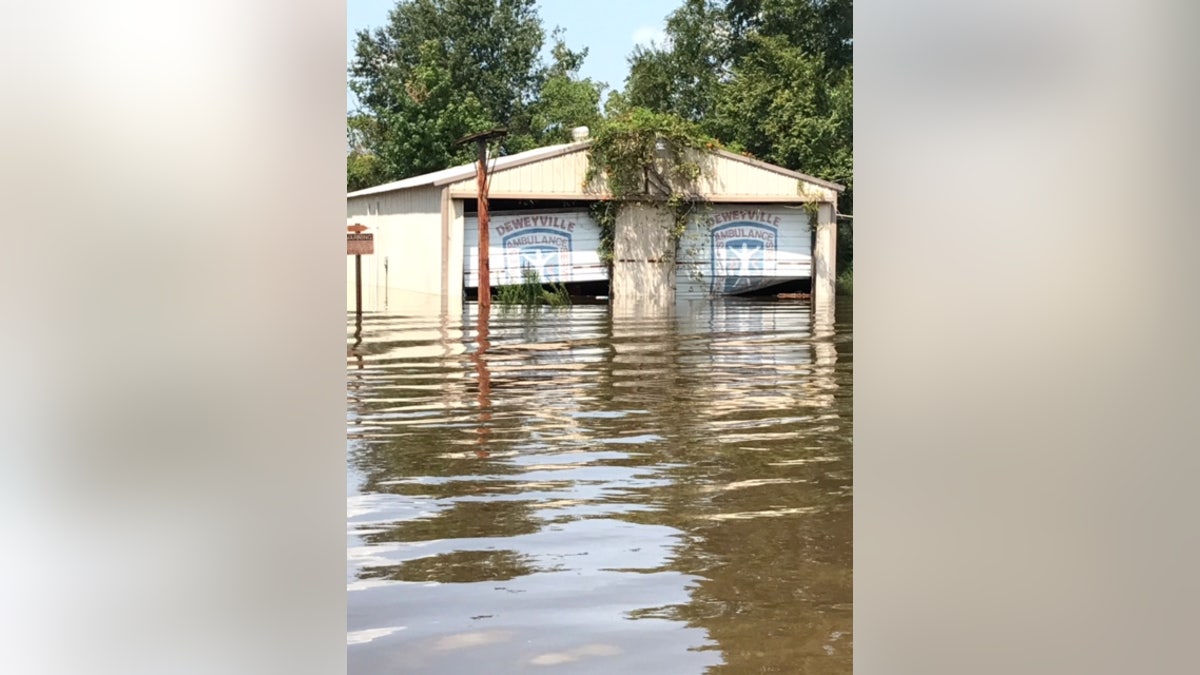
The small town of Deweyville in Texas was hard hit by Hurricane Harvey.
After Hurricane Harvey slammed ashore almost two weeks ago, scores of Americans made their way to Texas – but offering a helping hand in crisis is far from straightforward, which has left many volunteers frustrated and disheartened.
Major players from the Texas National Guard and Texas State Troopers to the Red Cross, FEMA, Salvation Army quickly dispatched into the disaster zone, along with police, church groups, local and state aid groups and other well-intentioned people, quickly creating a chaos akin to too many cooks in the kitchen. It left assets and supplies languishing.
“We were trying to help a small community of people without food, water or electricity and had little contact with rescuers to receive supplies. They were very upset,” Chris Fiore, a 20-year-old volunteer Emergency Medical Technician (EMT) and Texas native, told Fox News this week from Deweyville, Texas – a small town about 110 miles northeast of Houston washed out by floods. “But we were told by police that they couldn’t let anyone in and didn’t seem to have a good reason behind it. We had cases of water, MREs, dog food and basic sanitary items – we just wanted to bring people supplies. It was impossible for me just to sit in my house while people are in need.”
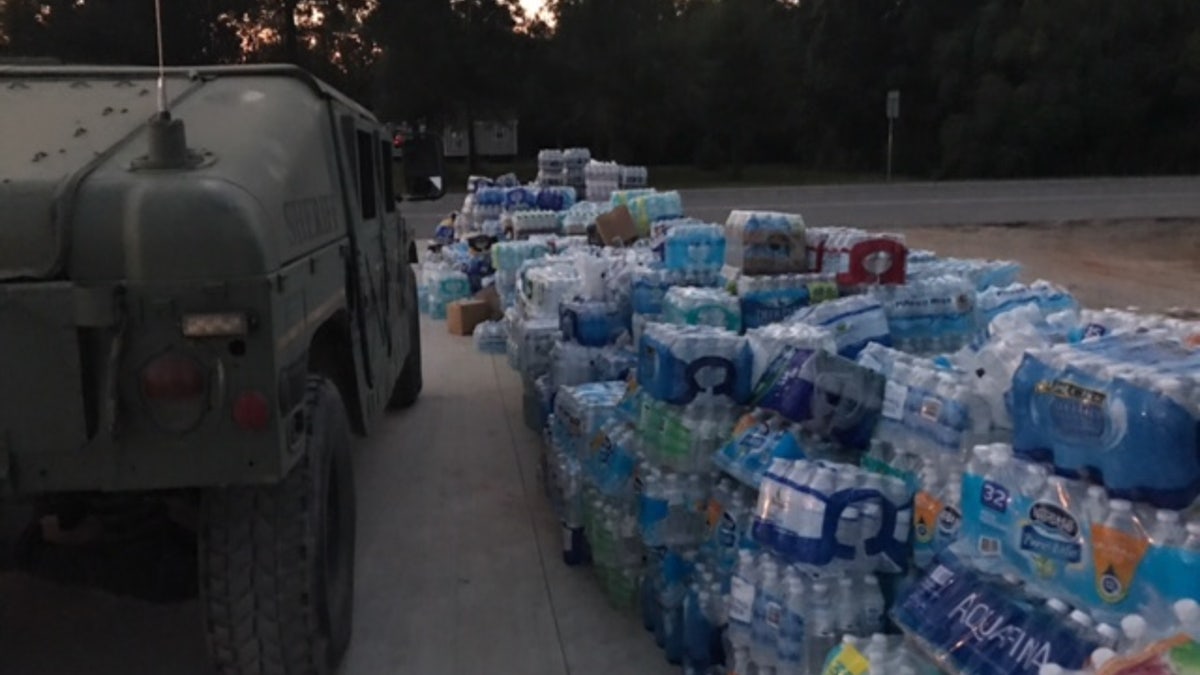
Water bottles waiting to be delivered to those in need after Hurricane Harvey.
Fiore was joined by five well-trained U.S. military veterans that had aligned with Southeast Texas (SETX) Disaster Relief. One of those veterans told Fox News that for the first couple of days they routinely saw and heard law enforcement personnel actively turning away volunteer search-and-rescue organizations with supplies or information about people who needed help.
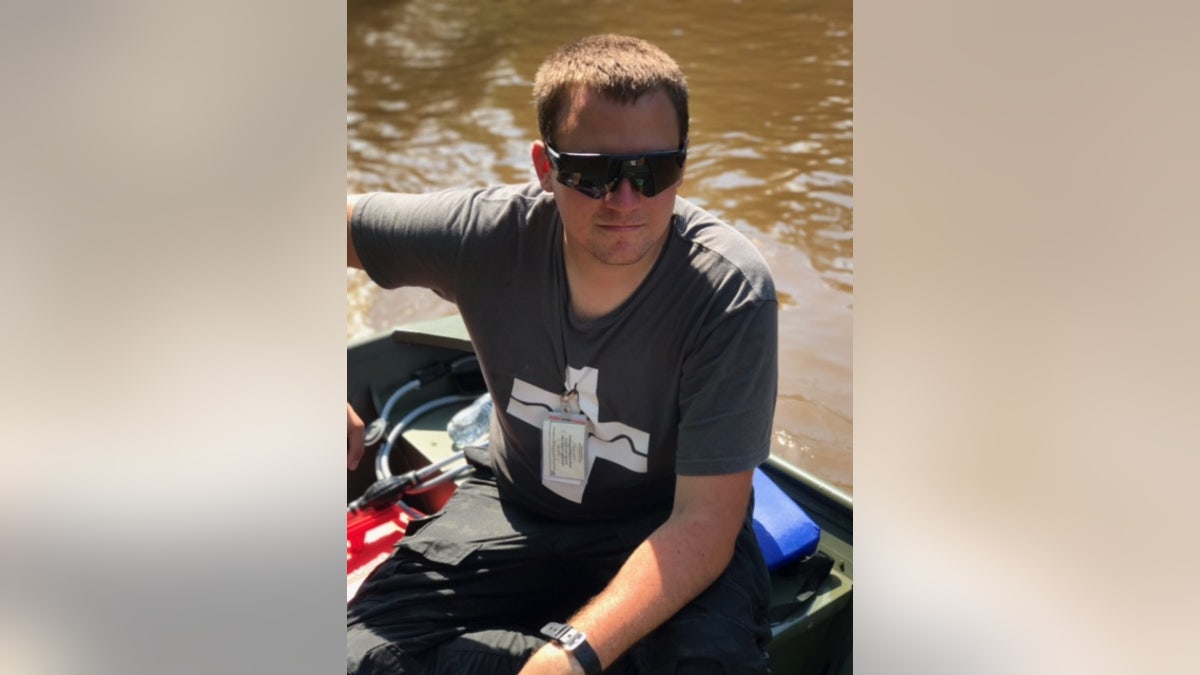
Chris Fiore, a Texas native and EMT, expressed frustration at not being able to swiftly help those in his home state after Hurricane Harvey.
“Some local police and fire wanted us to go in, but some were turning us away without reason,” he lamented. “We were just trying to save people.”
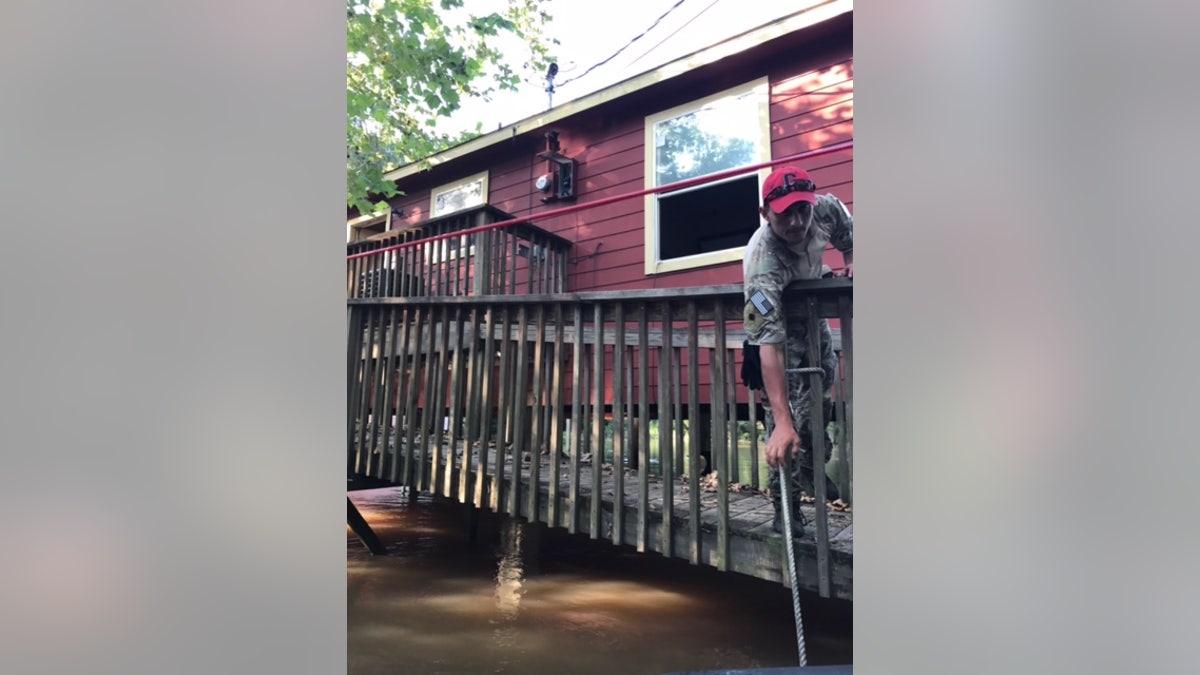
U.S military veterans volunteering in the Houston area following Hurricane Harvey.
Another veteran said they were waved through on Sunday to help, but on Monday – when their whole team had mobilized – the rules had changed and they needed permission from law enforcement.
“There were are a lot of people who had flown in with supplies – trained medics, former military personnel – but wanted just to go home as they were held back from helping,” the veteran, who requested anonymity, said. “And people were being threatened with arrest if they crossed the police line, when they were only trying to help.”
Yet the issue of being turned away has proven to be just one of many challenges associated with disaster aftermath.
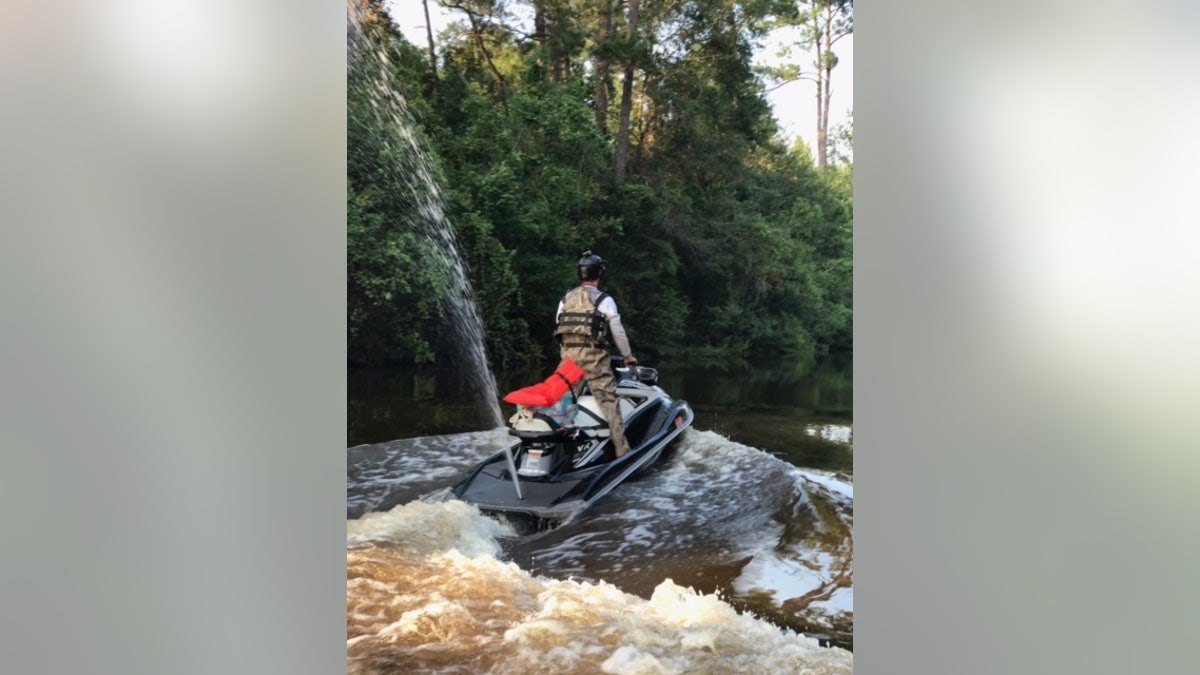
U.S military veteran volunteers used speed boats to try and get to those in dire need of help after Hurricane Harvey.
According to officials from Texas Search and Rescue (TEXSAR), lessons have been learned on a variety of fronts as volunteers “crossed channels” with rescuers in the days after the hurricane made landfall. A group of people – in a gracious attempt to coordinate efforts by spontaneous volunteers to provide aid – set up an open channel on the “walkie-talkie” style Zello app so that those in need or rescue or those wanting to help could contact them. The channel was then advertised in national media outlets, and links were posted on social media and Zello’s website.
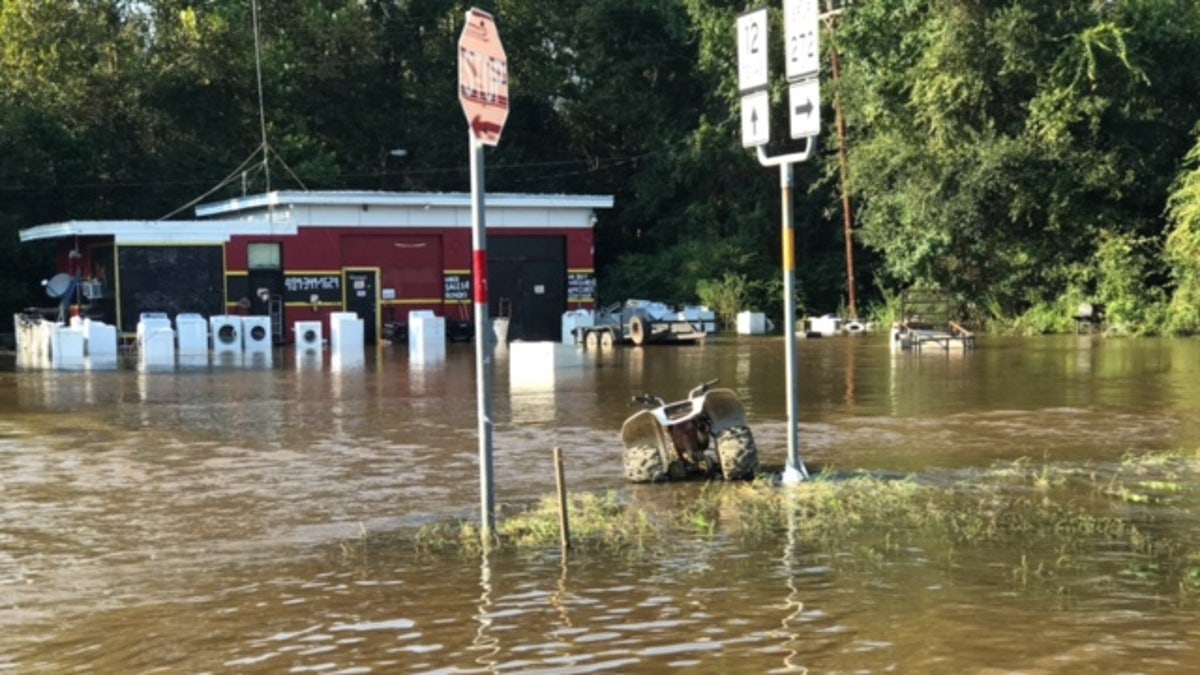
Aftermath of Hurricane Harvey.
“We were in the middle of rescue operations when we found out about it, people began contacting us with various questions, requests and complaints about how we were operating. It took a while to figure out what was going on,” TEXSAR Planning Section Chief for Texas Brandon Goering stated. “Some had even taken our logo and made it the profile picture for the channel, so it very much appeared that this was the channel on which our team was conducting operations.”
NEW EVACUATION ORDERS AS HURRICANE IRMA FEARED TO STRIKE FLORIDA
But the problems only deepened when they started receiving requests that should have been directed to 911, coupled with volunteers who then assumed they were part of the TEXSAR umbrella having gone through the Zello channel, arriving from other states and asking for clarification on Texas gun laws to know exactly who they were “allowed to shoot.”
“Cringe-worthy stuff for sure,” Goering continued, noting that despite a few “bad apples,” the vast majority of people operating on the channel had only the best intentions.
Yet Shawn Hohnstreiter, Board Chairman and Operations Section Chief of TEXSAR, fears that the debacle may take a “long time to overcome” reputation-wise.
“We have received multiple complaints from people that thought these spontaneous volunteers were our legitimate organization,” he said. He also noted that T-shirts and other merchandise with their name on it has shown up on Amazon.com without their approval.
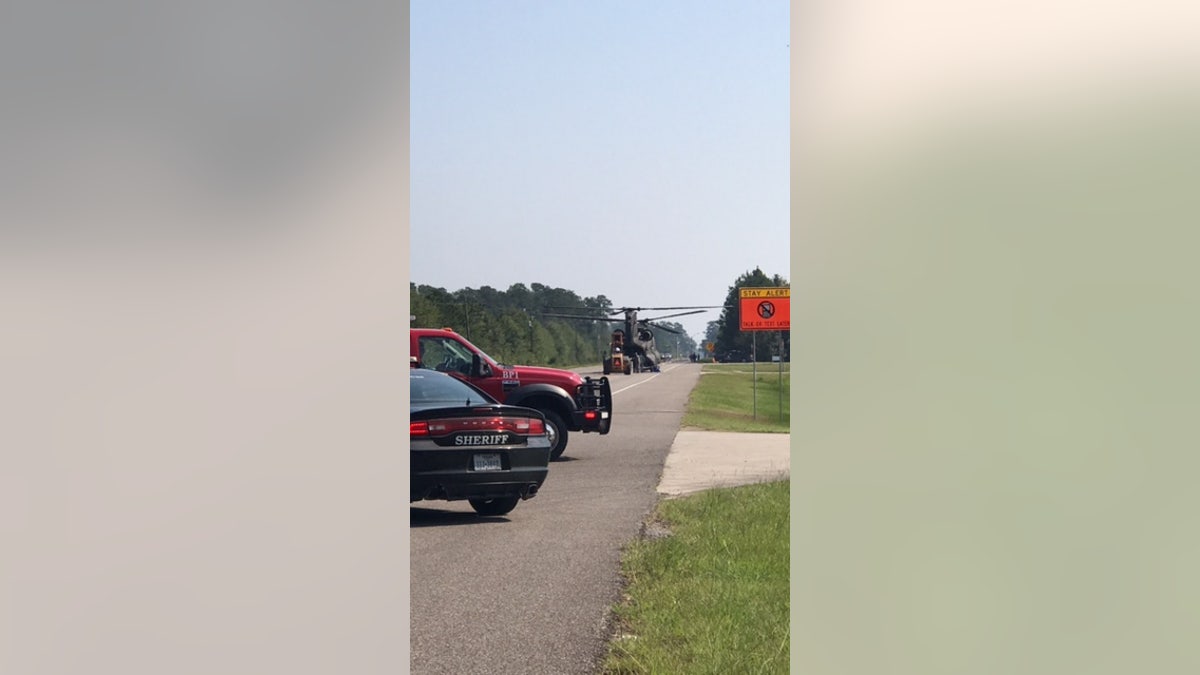
Many challenges associated with response and recovery efforts following Hurricane Harvey.
However, volunteer Sequoia D’Angelo – who deployed to Dallas to help people being relocated and sheltered there – said while she and others were somewhat initially frustrated at having to wait to clear a background check with the Red Cross and be officially registered as volunteers, it was a process she considered vital given the circumstances.
“People were showing up to the Kay Bailey Hutchinson Convention Center in Dallas who were not background-checked or screened and therefore were not allowed to volunteer. There is a reason they were doing this. It is a very vulnerable population that was housed there, and they wanted to ensure anybody who was coming in had the right intentions. There were also a lot of local religious groups trying to get in, but we had to be very careful about who was being allowed in the doors. There were a lot of big organizations there – Red Cross, Texas National Guard, FEMA – and the issues with the growing chain of command took a few days to sort out.”
In the aftermath of the disaster, generous Americans were quick to donate supplies. Still, that too has a tendency to turn problematic.
“The most important way people can help is to donate cash to a trusted agency. Do not donate clothing or household items to unsolicited organizations,” stressed Deanna Frazier, media relations manager for FEMA’s Hurricane Harvey Recovery. “These type of donations divert staff efforts away from assisting survivors, and into sorting, transporting, storing and distributing these items.”
IRMA'S PATH: WHAT YOU SHOULD KNOW
Juanita Rilling, senior humanitarian advisor with disaster support firm McFadden Associates, concurred that “people who have no emergency training, are not from the area, do not have a place to stay or a not physically robust or up-to-date with tetanus shots” can sometimes be more of a hindrance than a help.
“(Those people) can help more through cash donations than by going to Houston,” she said. “You can literally save people’s lives from your living room by supporting reputable organizations with life-saving experience.”
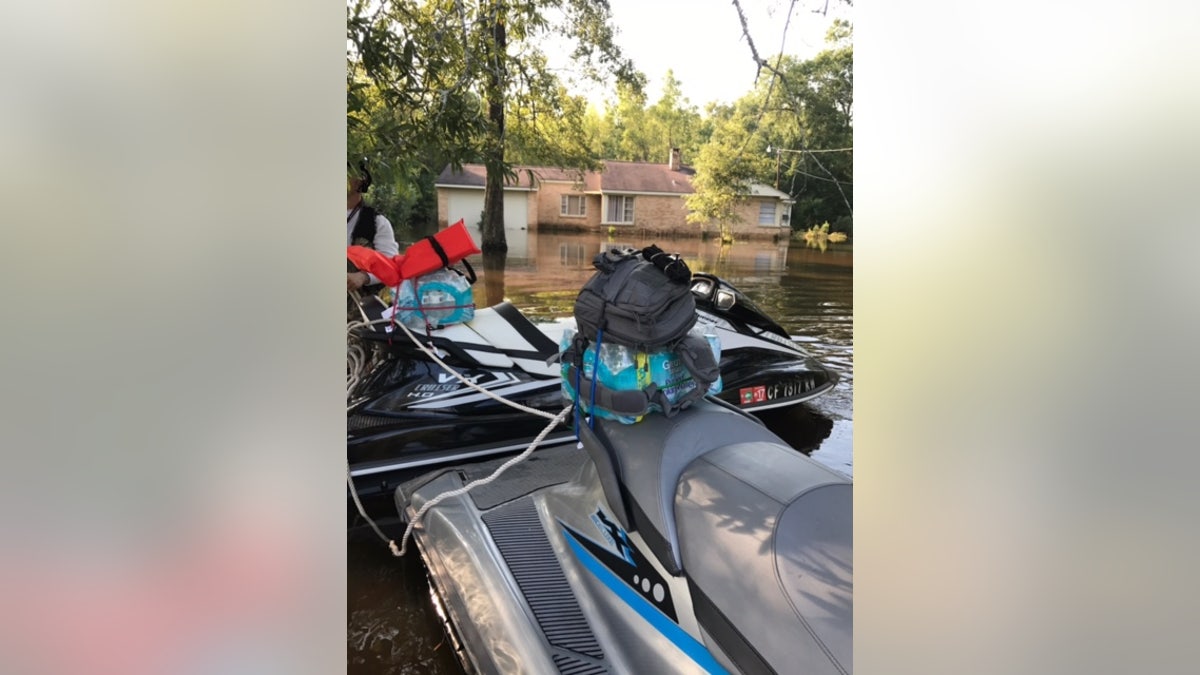
Response efforts following Hurricane Harvey.
Nonetheless, with Hurricane Irma charging toward the U.S. and Harvey’s cleanup effort likely to exceed $180 billion, the American Red Cross emphasized that volunteer groups – preferably with signed and formal agreements – remain vital.
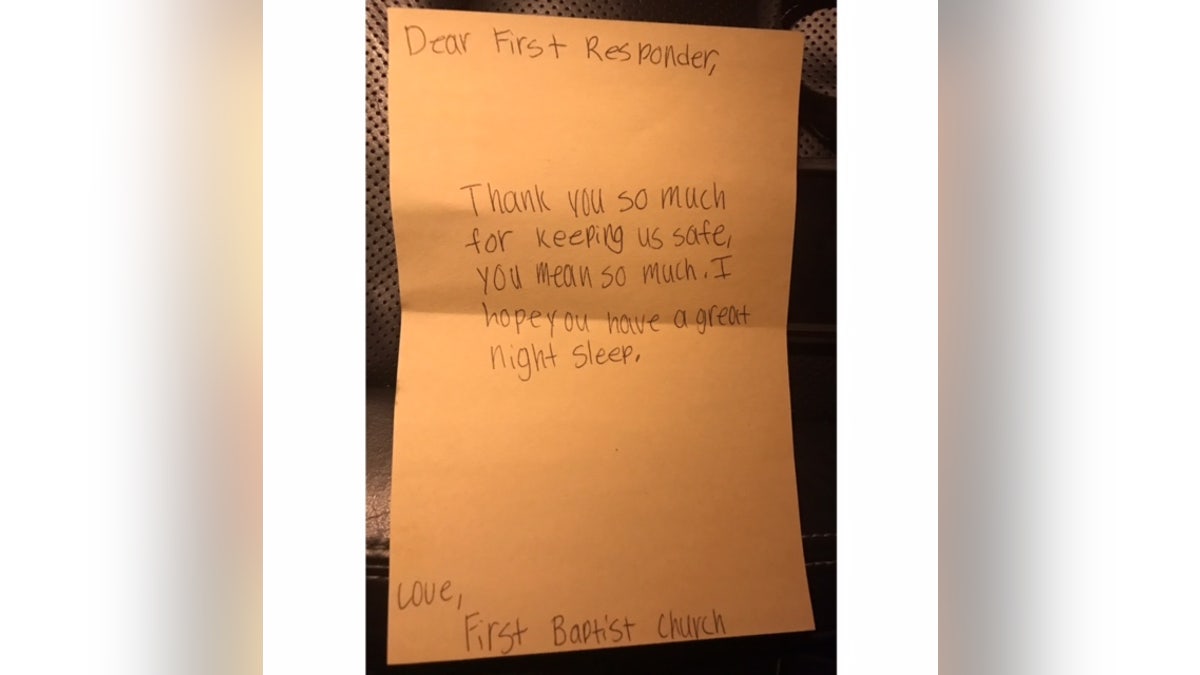
A letter written to a volunteer first responder following the Texas hurricane.
“Disasters, by their very nature, are chaotic. Massive disasters like Hurricane Harvey create more needs than any one organization can handle,” added MaryJane Mudd, Regional Communications Officer for the American Red Cross. “It takes all types of aid agencies to provide disaster relief and recovery services. We encourage, and value, volunteer groups who want to help their community.”








































